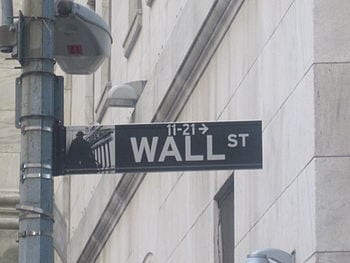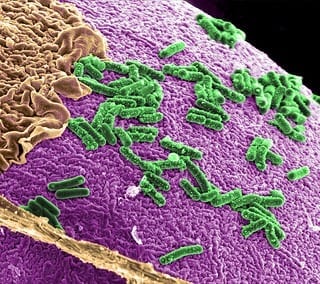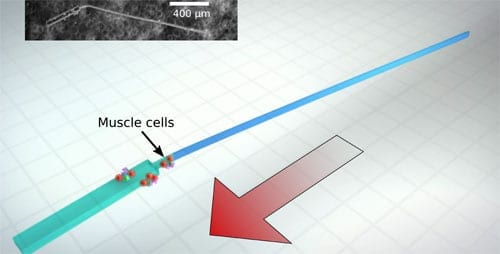
In my last year on Wall Street my bonus was $3.6 million — and I was angry because it wasn’t big enough.
I was 30 years old, had no children to raise, no debts to pay, no philanthropic goal in mind. I wanted more money for exactly the same reason an alcoholic needs another drink: I was addicted.
Eight years earlier, I’d walked onto the trading floor at Credit Suisse First Boston to begin my summer internship. I already knew I wanted to be rich, but when I started out I had a different idea about what wealth meant. I’d come to Wall Street after reading in the book “Liar’s Poker” how Michael Lewis earned a $225,000 bonus after just two years of work on a trading floor. That seemed like a fortune. Every January and February, I think about that time, because these are the months when bonuses are decided and distributed, when fortunes are made.
I’d learned about the importance of being rich from my dad. He was a modern-day Willy Loman, a salesman with huge dreams that never seemed to materialize. “Imagine what life will be like,” he’d say, “when I make a million dollars.” While he dreamed of selling a screenplay, in reality he sold kitchen cabinets. and not that well. We sometimes lived paycheck to paycheck off my mom’s nurse-practitioner salary.
Dad believed money would solve all his problems. At 22, so did I. When I walked onto that trading floor for the first time and saw the glowing flat-screen TVs, high-tech computer monitors and phone turrets with enough dials, knobs and buttons to make it seem like the cockpit of a fighter plane, I knew exactly what I wanted to do with the rest of my life. It looked as if the traders were playing a video game inside a spaceship; if you won this video game, you became what I most wanted to be — rich.
IT was a miracle I’d made it to Wall Street at all. While I was competitive and ambitious — a wrestler at Columbia University — I was also a daily drinker and pot smoker and a regular user of cocaine, Ritalin and ecstasy. I had a propensity for self-destruction that had resulted in my getting suspended from Columbia for burglary, arrested twice and fired from an Internet company for fistfighting. I learned about rage from my dad, too. I can still see his red, contorted face as he charged toward me. I’d lied my way into the C.S.F.B. internship by omitting my transgressions from my résumé and was determined not to blow what seemed a final chance. The only thing as important to me as that internship was my girlfriend, a starter on the Columbia volleyball team. But even though I was in love with her, when I got drunk I’d sometimes end up with other women.
Three weeks into my internship she wisely dumped me. I don’t like who you’ve become, she said. I couldn’t blame her, but I was so devastated that I couldn’t get out of bed. In desperation, I called a counselor whom I had reluctantly seen a few times before and asked for help.
She helped me see that I was using alcohol and drugs to blunt the powerlessness I felt as a kid and suggested I give them up. That began some of the hardest months of my life. Without the alcohol and drugs in my system, I felt like my chest had been cracked open, exposing my heart to air. The counselor said that my abuse of drugs and alcohol was a symptom of an underlying problem — a “spiritual malady,” she called it. C.S.F.B. didn’t offer me a full-time job, and I returned, distraught, to Columbia for senior year.
The Latest on: Love of Money
[google_news title=”” keyword=”Love of Money” num_posts=”10″ blurb_length=”0″ show_thumb=”left”]
via Google News
The Latest on: Love of Money
- Actress Kelli O’Hara’s Career Advice: Take ‘the Long Road’ in an Era of Viral Sensationson May 1, 2024 at 3:37 pm
Worldwise: The Tony award winner talks about some of her favorite things as she gears up for the opening of “The Hours” at the Metropolitan Opera on Sunday ...
- Schoolboy puts love of cycling to good use to raise money for Dogs Truston May 1, 2024 at 9:00 am
Itchen Abbas resident Jake Kurton, who is nine years old, loves cycling and decided to use his passion to ride 100 miles and raise money for Dogs Trust.
- Elderly Americans scammed out of millions by foreigners posing as grandchildren in troubleon May 1, 2024 at 7:27 am
Department of Homeland Security says 5,000 victims between the ages of 72 and 93 were duped out of a collective $35 million in a "grandparent scam" from the Dominican Republic.
- Texans Helping Texans | Katy man uses love of pie, guitars to raise money for charityon April 30, 2024 at 4:34 pm
To give back to his community, Scott Chapman creates custom guitars with a famous twist. HOUSTON — "Everyone said you should call it humble pie, but there is nothing humble about the way I talk about ...
- Tough Love for Financially Irresponsible Parents of Adult Childrenon April 30, 2024 at 12:00 am
You and your brother will need to exercise tough love with your mom. In the future, if she is truly in need of food, has the electricity turned off, or her personal safety is at risk, do not give her ...
- ‘Barbie’ Poster Signed by Margot Robbie, ‘Love Actually’ Original Script Among Auction Items Raising Money for Children Affected by Waron April 24, 2024 at 4:01 pm
A 'Barbie' poster signed by Margot Robbie and the original 'Love Actually' script are just a few of the items in the latest auction for War Child.
- Money Market Account vs. Savings Account: Understanding the Differenceson March 26, 2024 at 8:13 am
His love of reading led him to seek out training ... or playing a board game with his kids (and sometimes with his wife). Money market and savings accounts are similar but may have different ...
- For the love of money: Have financial conversations often to strengthen relationshipon February 14, 2024 at 3:35 am
Money is an emotionally charged topic, so it is no surprise that many couples fight about it. In a survey by Orion, 42% of American adults said they have disagreements about money with their partners ...
- Love of Moneyon May 11, 2023 at 11:25 pm
Raquel Lamanna (Emily)Summer Morris (Rebecca)Ariany Cespedes (Josephine)Cassidy Morris (Victoria)Letizia Mateo (Eden)Connor Meagher (Jason)Mikayla Kane (Tiffany)Denise Morris (Paula)Oxana Heyward ...
- For the Love of Moneyon November 23, 2021 at 3:40 am
When a single mother is pushed to her limit, she turns to the only world she knows, a world she’s spent a lifetime running from, to protect her daughter. Full Synopsis - GIGI DAVIS is a strong ...
via Bing News









